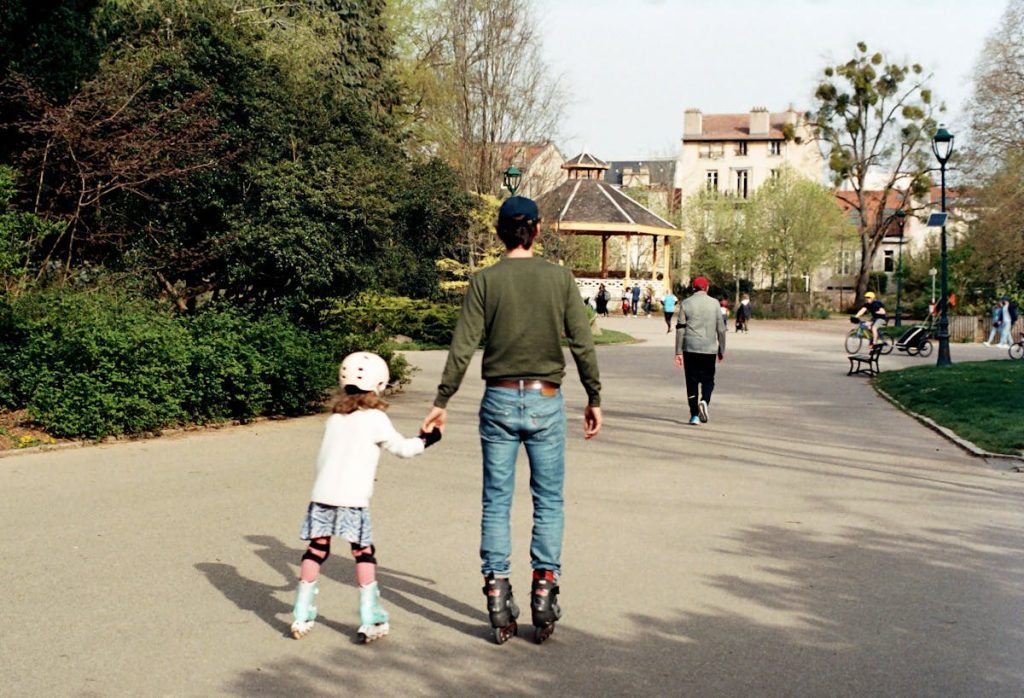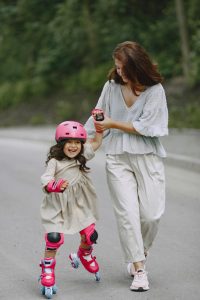Roller skating workshops are a fantastic way to introduce kids to the world of skating, helping them develop important skills, build confidence, and stay active. With the right approach, these workshops can be a fun, educational, and memorable experience for young skaters.

Whether you’re a skating rink owner, a teacher, or a parent looking to organize a workshop, here are some tips on creating an engaging and safe environment for kids to learn and grow on wheels:
Focus on Fun and Learning
The primary goal of any roller skating workshop for kids should be to combine learning with fun. Children are more likely to stay engaged and motivated if they’re having a good time while developing their skills. Plan a mix of instructional time and fun skating games or activities to keep them excited about learning.
Ideas for fun activities:
- Relay races: Organize simple relay races to help kids practice speed and balance.
- Follow the leader: Have an instructor or older skater lead a group of kids in fun patterns around the rink, such as weaving, spinning, or skating backward.
- Themed skating: Add themes like superhero day or disco skating to make the workshop even more exciting for kids.
Start with the Basics
Workshops should always begin with teaching the basic fundamentals of roller skating. For younger children or beginners, start with essential skills like balancing, stopping, and proper posture. Make sure every child feels comfortable and confident before moving on to more advanced techniques.
Key skills to focus on:
- Balance and stance: Teach kids how to stand on their skates with bent knees and weight centered.
- Stopping techniques: Show them how to use the toe stop or heel brake to safely come to a halt.
- Falling safely: Teach the importance of falling forward (onto hands and knees) rather than backward, minimizing the risk of injury.
Safety First
Safety is the top priority when organizing a roller skating workshop for kids. Ensure that every participant has proper safety gear, including helmets, knee pads, elbow pads, and wrist guards. Emphasize the importance of wearing protective gear at all times, even during casual skating.
Safety considerations:
- Protective gear check: Before the workshop begins, do a quick check to make sure each child’s safety gear fits properly.
- Safe skating space: Ensure that the skating area is clean, well-maintained, and free of obstacles. If outdoors, make sure the surface is smooth and safe for skating.
- Instructor supervision: Have a low child-to-instructor ratio to ensure every child gets attention and assistance when needed. Having more adults on hand helps prevent accidents and keeps the group manageable.
Incorporate Skill Development
As the workshop progresses, more advanced skills will be introduced to challenge the kids and help them grow as skaters. You can teach techniques such as backward skating, crossovers, and basic spins. Tailor the difficulty level to the group’s abilities, ensuring that each child is challenged but not overwhelmed.
Skill-building tips:
- Break it down: For more complex skills, break them down into smaller steps and demonstrate each part slowly. Allow kids to practice at their own pace.
- Use positive reinforcement: Encourage kids with praise and constructive feedback. Celebrate small victories, like standing up without help or successfully stopping.
- Practice drills: Incorporate fun practice drills that allow kids to repeat and perfect the skills they’re learning, such as figure-eights or obstacle courses.
Encourage Teamwork and Social Interaction
Workshops are a great way for kids to make new friends and learn the value of teamwork. Encourage cooperative games and group activities to foster social interaction among the skaters. Skating in pairs or groups helps kids develop better coordination and builds a sense of community within the workshop.
Social activities:
- Team games: Create team-based games, such as relay races or obstacle courses, to encourage teamwork and friendly competition.
- Group challenges: Introduce group challenges where the kids work together to achieve a common goal, like completing a specific number of laps or mastering a new trick.
End with a Fun Showcase
Wrap up the workshop by giving the kids a chance to showcase what they’ve learned. Organize a small performance or “skate show” where the kids can demonstrate their new skills to their friends and families. It’s a great way to boost their confidence and make the experience feel rewarding.
Final celebration ideas:
- Mini skate performance: Have each child or group of children perform a short routine, highlighting their favorite skills learned during the workshop.
- Award certificates: Hand out participation certificates or small awards to recognize each child’s effort and progress.
Organizing a roller skating workshop for kids is a wonderful way to encourage young skaters to learn, grow, and have fun. By focusing on skill development, safety, and fun activities, you can create a memorable experience that helps kids build confidence and develop a lifelong love for skating. Whether it’s their first time on wheels or they’re looking to improve their skills, workshops offer a structured yet playful environment for kids to thrive.
So, lace up those skates and get ready for a fun-filled day at Rainbow Rink!


Leave a Reply